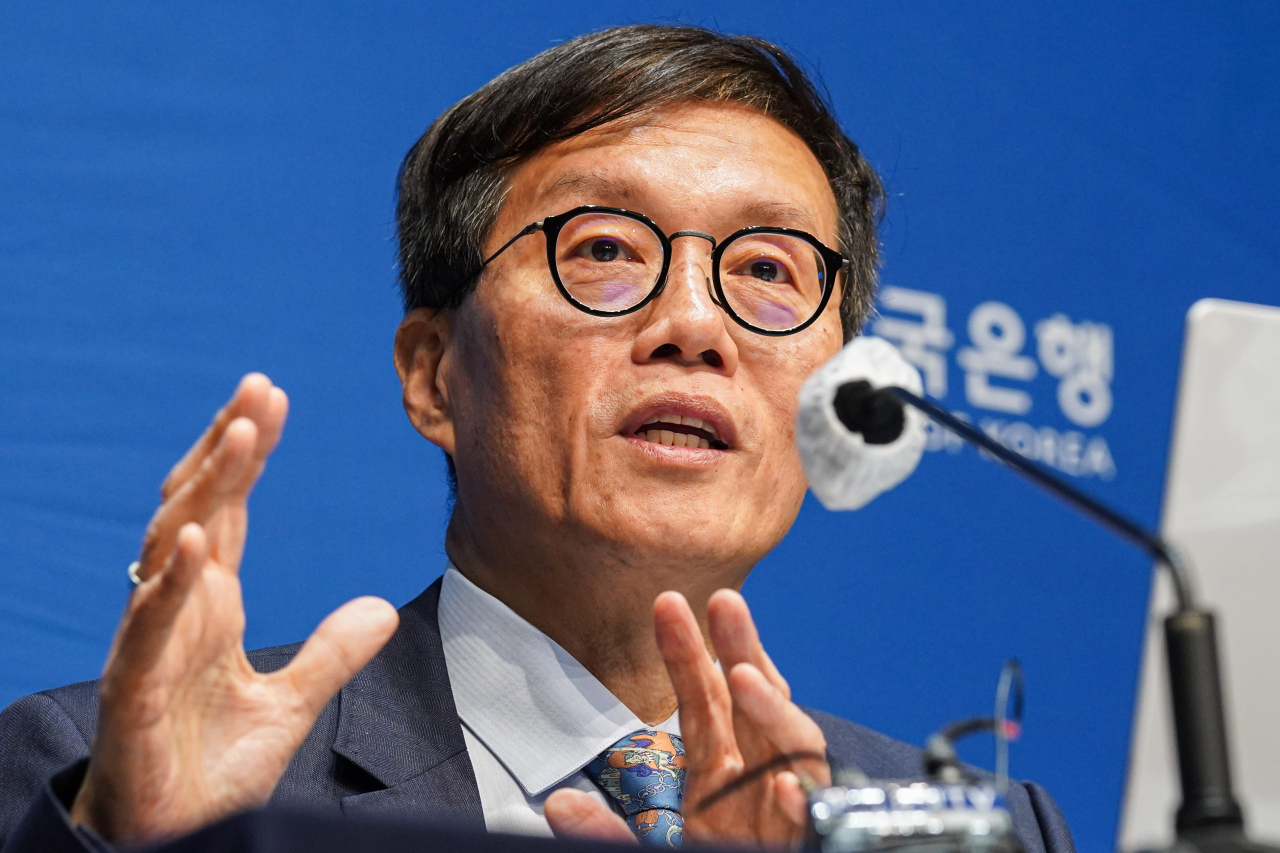BOK’s hands tied amid heightened uncertainties
Central bank holds key rate at 3.5 percent for 6th consecutive time
By Im Eun-byelPublished : Oct. 19, 2023 - 15:30

Central bank holds key rate at 3.5 percent for 6th consecutive time
The Bank of Korea maintained its benchmark interest rate at 3.5 percent on Thursday, amid mounting economic uncertainties provoked by tensions from the conflict between Israel and the Hamas militants.
The six-member Monetary Policy Board unanimously voted to carry out its sixth rate freeze, keeping the benchmark rate steady since February.
“The biggest reason behind the rate hold was the high uncertainties surrounding the growth rate, inflation path and household debt. The board decided to wait and see,” BOK Gov. Rhee Chang-yong said at a press meeting held shortly after the rate decision.
Rebounding inflation has put pressure on the BOK. Though the central bank expected prices growth to fall to the low 2 percent range by the end of next year in its August projection, it said the timeline will likely be pushed back, considering the Israel-Hamas conflict.
If the conflict develops into a geopolitical crisis for the Middle East, this will lead to a surge in international oil prices that would put a squeeze on the Korean economy, which is heavily dependent on energy imports.
“For now, due to the Israel-Hamas conflict, it is difficult to make assumptions,” Rhee said. “But the board members reached the consensus that the downward trajectory of the inflation path will slow down than the latest projection made in August.”
Rhee further assessed the gap between policy stance and market expectations has finally narrowed. In past months, though both the US Federal Reserve and BOK have stressed high rates will persist, the market anticipated the central banks would soon drop the stance.
"The projection that the US Federal Reserve will maintain its high rates has strengthened, along with the expectation on how Korea's restrictive monetary policy will prolong," Rhee assessed.
The US Treasury yields rose to their highest level in 16 years Wednesday, as investors weighed signs the Fed will maintain its aggressive monetary policy for longer than expected. Korea’s treasury yields have been on the rise, too.
Considering the heightened uncertainties, even the board members expressed different views on the base rate, marking a difference to how they had unanimously maintained a hawkish undertone in the past meetings held this year.
Rhee said five out of the six board members agreed there should be room for further rate hikes considering the upward pressure on prices. One member said the BOK should have the flexibility to either raise or lower the rate once considering the economic volatility.
Market watchers project the BOK’s restrictive monetary policy to continue for a while amid the heightened uncertainties. But they do not foresee a rate hike coming.
“Though it is possible that Korea's restrictive policy could persist, the likelihood of it leading to a further rate hike is still low, which maintains the previous projection that the terminal rate stays at 3.5 percent for the time being,” analyst Ahn Ye-ha at Kiwoom Securities said.
KB securities analyst Lim Jae-kyun further suggested the central bank could start to cut the base rate in the second half of next year when it sees that on-year consumer prices growth has fallen to 2 percent.
“The BOK could cut the key rate from the third quarter of 2024 at the earliest,” Lim said. “But with the hike in public utility charges from electricity bills to subway fares, it could take longer for the prices growth to fall to the 2 percent range, which will push back the rate cut to the fourth quarter of 2024, or even 2025."



















![[Today’s K-pop] Treasure to publish magazine for debut anniversary](http://res.heraldm.com/phpwas/restmb_idxmake.php?idx=642&simg=/content/image/2024/07/26/20240726050551_0.jpg&u=)